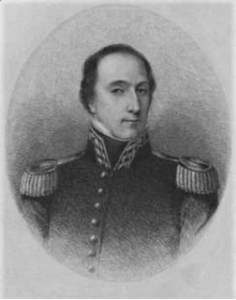The power of love
(Poet's title: Die Macht der Liebe)
Set by Schubert:
D 308
Schubert did not set the lines in italics[October 15, 1815]
Part of Selam (putative cycle)
Überall wohin mein Auge blicket,
Herrschet Liebe, find ich ihre Spur,
Jedem Strauch und Blümchen auf der Flur
Hat sie tief ihr Siegel eingedrücket.
Sie erfüllt, durchglüht, verjüngt und schmücket
Stets das All der wirkenden Natur;
Erd und Himmel, jede Kreatur
Lebt und webt durch sie, von ihr beglücket.
Blinder Knabe! muss denn alles sich
Unter deinen Rosenscepter schmiegen?
Ja, es atmet alles nur für dich!
Alles schlürft in taumelndem Vergnügen
Deinen Honig ein in langen Zügen!
Hast du Wermut nur allein für mich?!
Everywhere, wherever my eye looks,
Love is in control, I find a trace of it;
Every shrub and little flower on the ground
Bears its stamp, etched deeply into it.
It fills up, glows through, rejuvenates and adorns
The whole of active nature, at all times:
Earth and heaven, each creature
Lives and interconnects through love, made happy by love.
Blind lad! So does everything have to
Wrap itself around your rose-sceptre?
Yes, everything breathes just for you!
In giddy delight everything sips
Your honey, taking long drafts!
Do you keep wormwood just for me?!
All translations into English that appear on this website, unless otherwise stated, are by Malcolm Wren. You are free to use them on condition that you acknowledge Malcolm Wren as the translator and schubertsong.uk as the source. Unless otherwise stated, the comments and essays that appear after the texts and translations are by Malcolm Wren and are © Copyright.
☙
Themes and images in this text:
It is not just every animate being, each animal, that is driven by ‘love’, according to this text, but everything that is productive or active, including plants and weather systems. ‘Love’ cannot therefore simply be equated with sexual reproduction and the urges that go with it. For this poet, the power that pushes plants upwards in order to have access to light and the forces of evaporation and precipitation that make up the water cycle are all part of what it means to ‘love’: to reach out and connect with other parts of nature. ‘Jede Kreatur / Lebt und webt durch [die Liebe]’ (Each creature lives and interconnects, literally ‘weaves’, through love). It is this interweaving in general (not just the sex drive) that is ‘love’.
It may be that Kalchberg (a high ranking soldier based in Styria) already knew about the work of Alexander von Humboldt, who had more or less invented the concept of ‘ecology’ (nature’s interconnectedness) in the course of his scientific expedition to the Andes between 1799 and 1804. He would not have known, though, that Humboldt (despite being intensely aware of all the interweaving going on in the world) was not himself able to participate in all the love-making (he seems to have repressed or sublimated his unconventional sexuality). For some people, looking around at nature and noticing the ubiquity of love can be extremely isolating.
☙
Original Spelling Die Macht der Liebe Überall wohin mein Auge blicket, Herrschet Liebe, find' ich ihre Spur; Jedem Strauch und Blümchen auf der Flur Hat sie tief ihr Siegel eingedrücket. Sie erfüllt, durchglüht, verjüngt und schmücket Stets das All der wirkenden Natur; Erd' und Himmel, jede Kreatur Lebt und webt durch sie, von ihr beglücket. Blinder Knabe! muß denn alles sich Unter deinen Rosen-Scepter schmiegen? Ja, es athmet alles nur für dich! Alles schlürft in taumelndem Vergnügen Deinen Honig ein in langen Zügen! Hast du Wermuth nur allein für mich?!
Confirmed by Peter Rastl with Schubert’s source, Selam. Ein Almanach für Freunde des Mannigfaltigen. Herausgegeben von I.F.Castelli. Dritter Jahrgang 1814. Wien, gedruckt und im Verlage bey Anton Strauß, page 38.
Note: A later version of Kalchberg’s poem has a different rhythm. Mandyczewski, the editor of Schubert’s first edition, who did not know Schubert’s source from “Selam”, used this later version of the poem to create a second stanza which would fit to the rhythm of Schubert’s music (Schubert wrote only the first stanza explicitly down in his manuscript, but added the comment “dazu eine Strophe”):
Sie erfüllt, durchglüht, verjüngt und schmücket
Alles Lebende in der Natur;
Erd’ und Himmel, jede Creatur,
Leben nur durch sie, von ihr beglücket.
To see an early edition of the text, go to page 38 [82 von 384] here: http://digital.onb.ac.at/OnbViewer/viewer.faces?doc=ABO_%2BZ255496805


